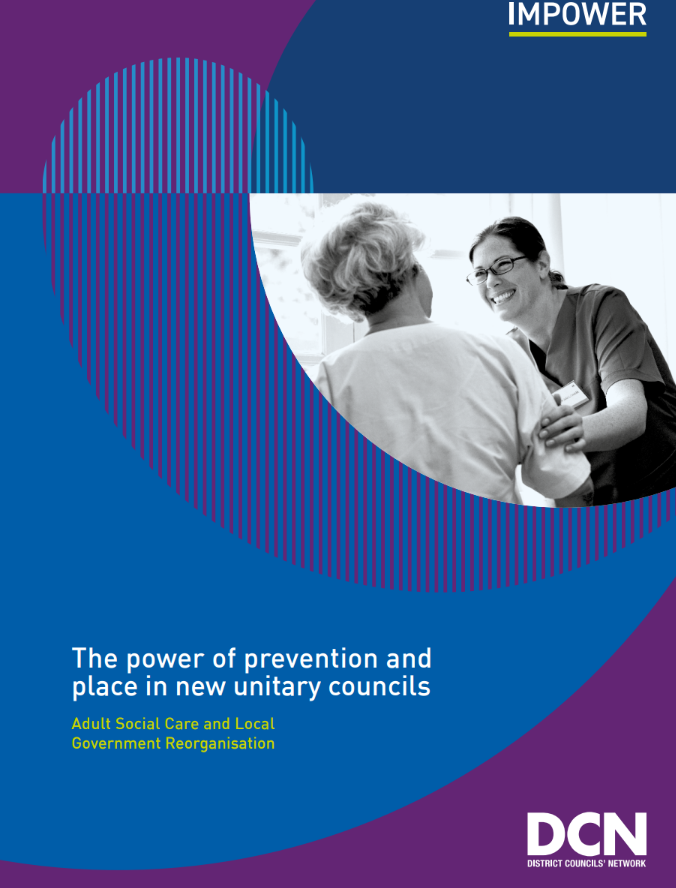Adult social care will be one of the biggest challenges and opportunities for new unitary councils after LGR.
DCN is pleased to publish this important new report in partnership with IMPOWER. It offers new analysis and evidence about what makes successful adult social care (ASC) services, how to identify the best model to deliver these services, and how to do this in the specific context of Local Government Reorganisation, especially where this involves disaggregating existing service footprints.
The report shows convincingly that disaggregating adult social care services can be done effectively with early planning, strong leadership and realism required to make it work. The prize disaggregation offers is a “chance to reset” services. “Done well, it may allow systems to better reflect the geographies of communities and care markets.”
The report counters the view that size is the most decisive factor in driving successful ASC services and that smaller social care footprints are bound to be less effective. IMPOWER’s analysis shows “there is no clear link between scale and overall quality of adult social care”. It notes that there are “no economies of scale in delivering personal care”, while larger systems sometimes “introduce diseconomies”.
It offers an optimistic vision for seizing LGR as an opportunity to redesign ASC services, drawing on the strengths that districts and smaller councils bring through their proximity to place and focus on prevention.
In response to the report, Cllr Hannah Dalton, health spokesperson for the District Councils’ Network, said:
“This report highlights that district councils have much to bring to the table in designing the future of adult social care – in particular, our unrivalled links our communities and our unwavering focus on prevention.
“District councils are specialists in adapting housing to ensure older people can remain independent for longer, running planning systems that encourage development to boost physical activity and overseeing wellbeing programmes to tackle obesity or mental illness. Following reorganisation, this work should be enhanced to complement and support more traditional social care work.
“Reorganisation should inject a strong sense of place into adult social care services – tailoring them to the unique needs of communities – and it must bring about a greater focus on prevention, which is the only way we can hope to tackle rising demand.
“This is where smaller councils have a natural advantage – with a localised focus on communities and close knowledge of their people and places. These attributes should be essential ingredients of redesigned and reimagined social care services.
“IMPOWER’s report confirms district councils should be confident to use their unique attributes to devise new approaches for adult social care. Services cannot go on as they are, with demand rising faster than budgets, unmet needs and low wages. It would be a mistake to simply carry forward the existing failing model at a wider scale, when a shift in approach towards prevention is desperately required.”
You can read the full report here.
You can read the DCN press release here.





